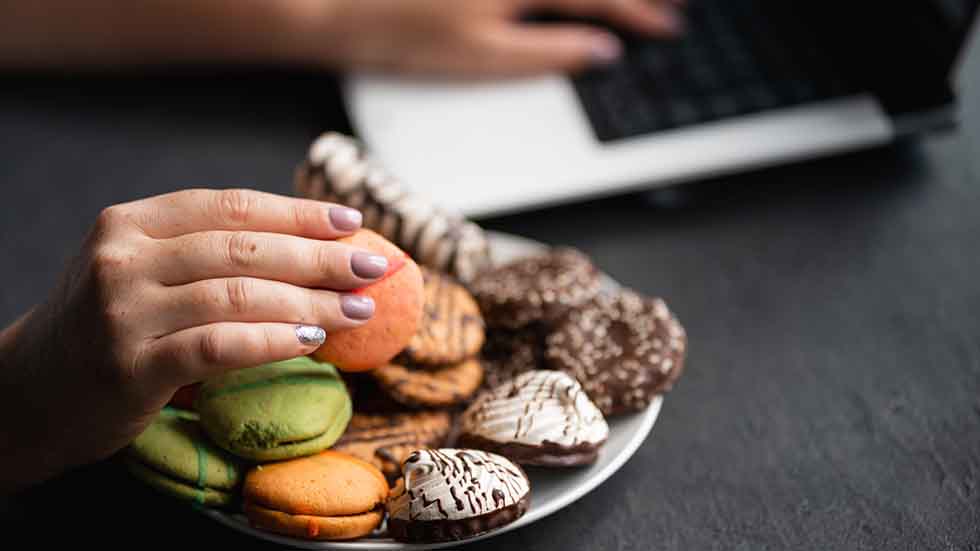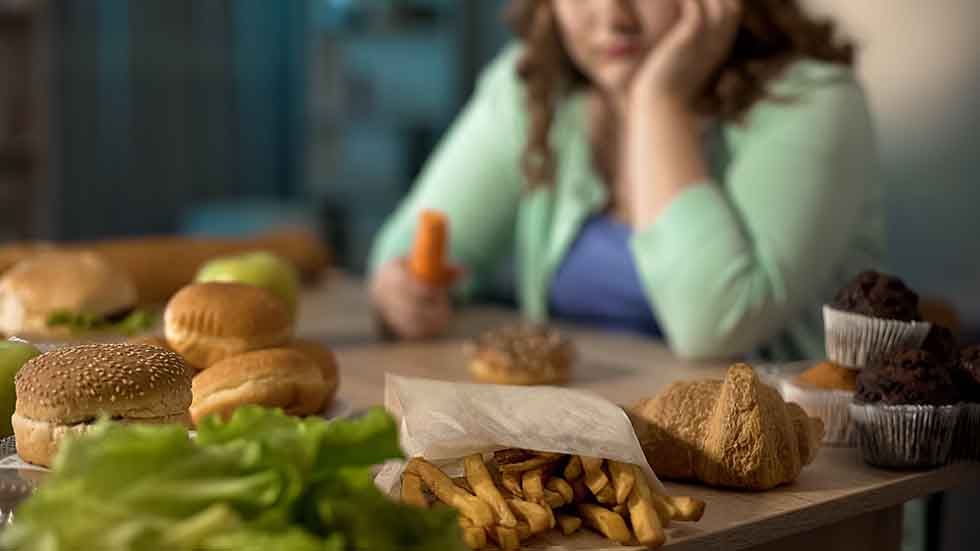How to Prevent Emotional Eating
Tips for understanding triggers and ways to help you overcome overeating


Entering the new year, many of us want to make a change to be healthier by eating better or exercising more often. However, one barrier to getting healthier is emotional eating due to stress or simply to feel better. And if 2020 taught us anything, a lot of us are emotional eaters.
The good news is this bad habit is something that can be stopped by understanding what emotional eating is and why you do it, and following these tips

What is emotional eating?
Do you turn to food for comfort, stress relief, or as a reward? Do you eat when you’re bored, lonely, happy, or sad? Do you eat when you aren’t hungry? If you answer yes to any of those, you’re probably emotional eating. The problem is that if you are eating in this way, you’re not likely reaching for the celery sticks, but instead for pizza, ice cream, or a bag of chips.
Emotional eating happens when you use food to make yourself feel better or fill an emotional need. Those who emotionally eat often use food as an impulsive coping mechanism for whatever they are feeling, and it can be an unhealthy cycle that leads to weight gain and other health issues. It can also lead to feeling overwhelmed or even guilty.
While you may feel good at the time you’re eating, you probably don’t feel great afterwards, and your feelings that triggered the eating are still there. However, with some practice, you can learn healthier ways to deal with your emotions and put a stop to emotional eating. Here are tips for ending emotional eating.

Identify your emotional triggers
What are the situations, places, or feelings that make you want to binge on your favorite chips or candy? These triggers can be either positive, such as rewarding yourself for something great that happened, or negative, such as feeling stressed, bored, or uncomfortable. Overeating can also happen in social situations with friends. Knowing what your triggers to emotional eating are can help you avoid or cope with them.
Keep a diary
One of the best ways to identify patterns, and cope with them, is to write them down. Keep a notebook where you track food and your mood. When you are feeling like emotional eating or binging, write down what you’re feeling and what the trigger was. Typically, you’ll be able to recognize something that sets off the feelings. Write down what you ate, and how you felt before and after. Writing this down can help you better see a pattern, which can help you identify healthier coping skills.

Explore alternatives to eating
In order to help control emotional eating, you need to find alternatives that will still help manage your emotions. For example, instead of using food to make you feel better if you’re depressed, try calling a friend, taking your dog for a walk, or reading a book. Or, if you’re feeling anxious, sing and dance to your favorite song. If you’re bored, turn on your favorite show or do an activity you enjoy.
Put it off for five minutes
Instead of reaching for food immediately, tell yourself to wait five minutes. Take it one minute at a time. Ask yourself how you’re feeling and what is triggering your need to eat. That way, if you do eat, you’ll have a better understanding of why you did it. And, waiting may cause you to realize you don’t need food to feel better, and you may move on to a different activity.
Create healthy lifestyle habits
Prioritize exercise each day as it can help your mood and energy levels, and even help reduce stress. Make sure you get enough sleep, which can help with appetite and reducing cravings. Give yourself time each day to relax and decompress so you don’t get overwhelmed with stress or anxious emotions. Be sure to connect regularly with friends and family, either over the phone, a video call, or in person. Social activities are important in combating stress and feelings of depression.
